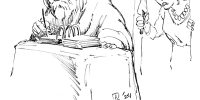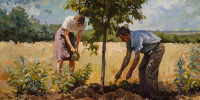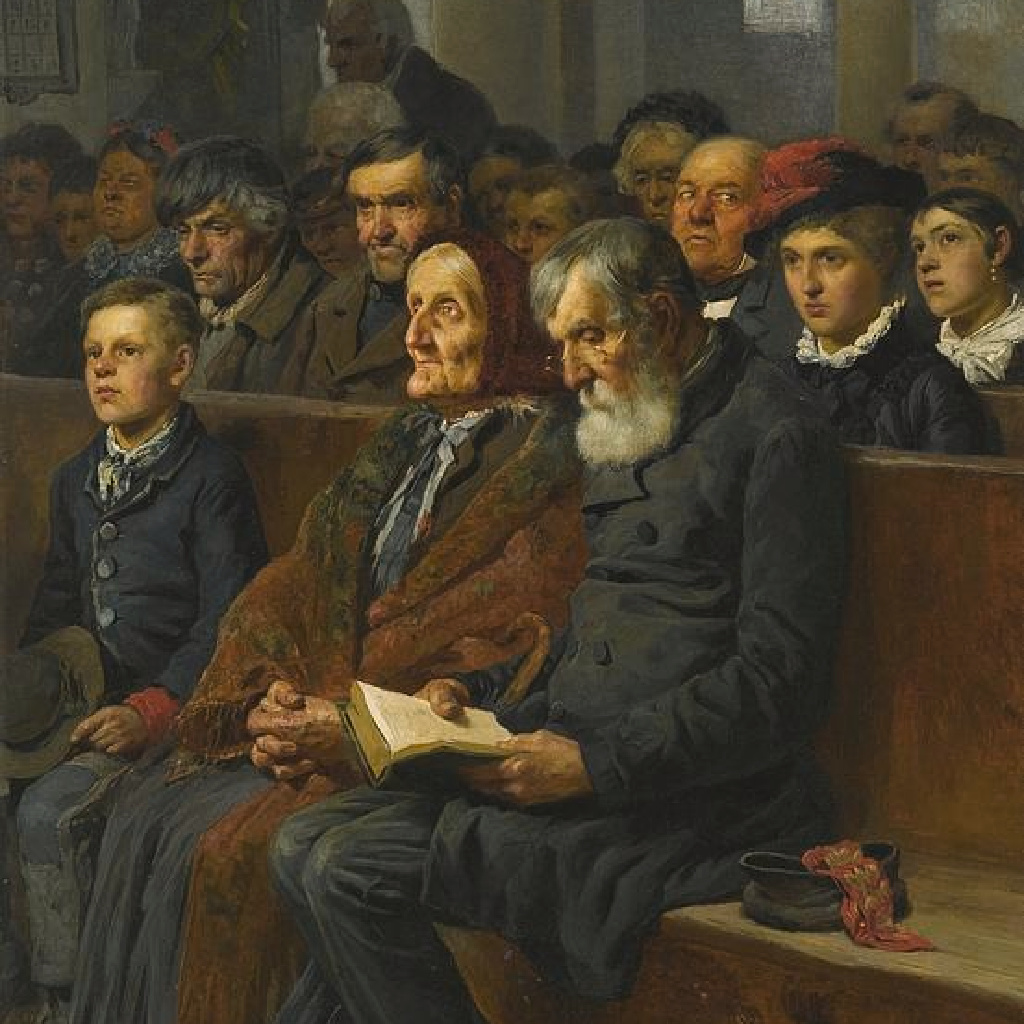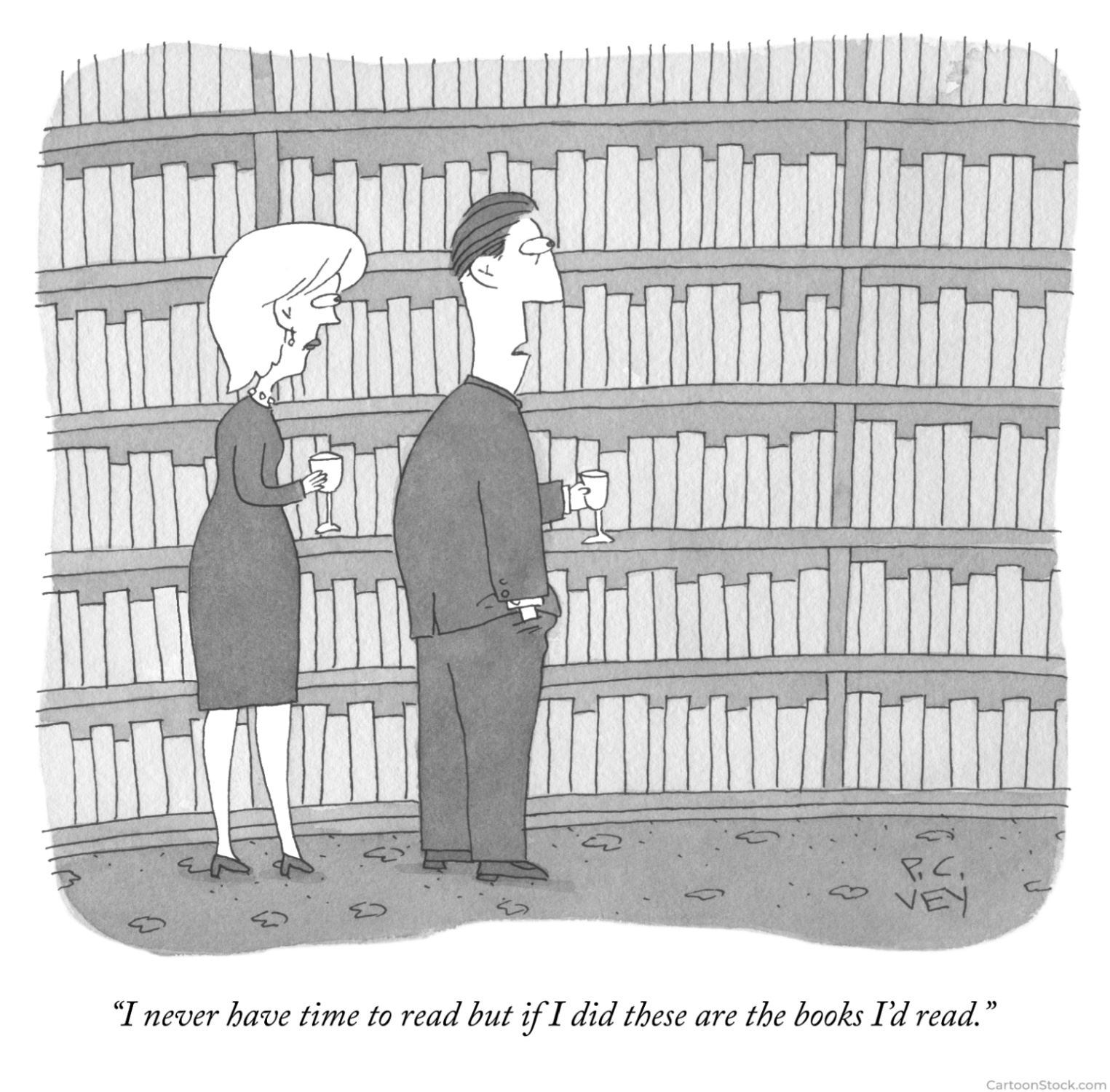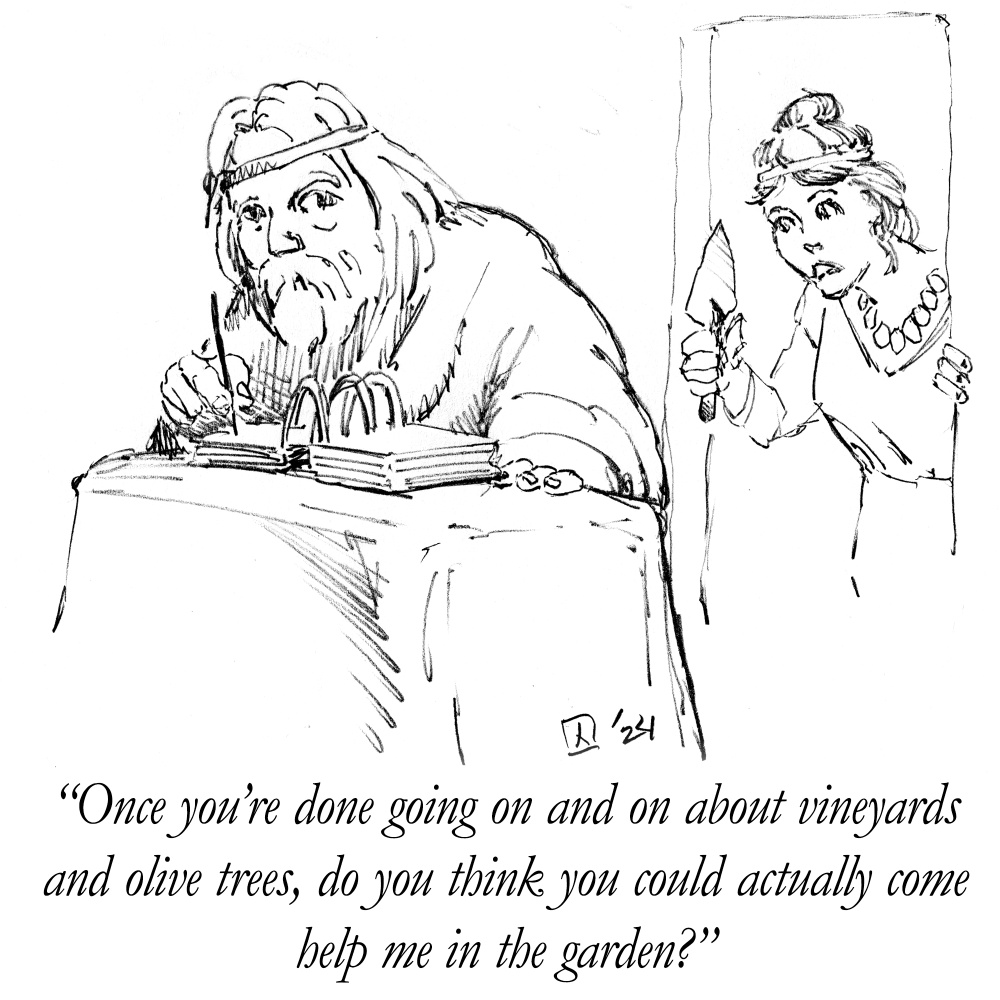The Big Idea: “How dare you call into question who I am and what I stand for?” Who among us really likes to hear criticism or judgment of our deepest convictions? It threatens us and can hurt us…especially when we experience it as a critique not only of our ideas but of who we are—or aspire to become! And let’s be honest: For most of us, that—our very selves—is precisely what we (with perhaps more than a little justification) feel is at stake when it comes to serious disagreements over family, politics, economics, religion, art, morality, and individual distinctions of sexuality, gender, race, capacity, and personality.
When so much is perceived to be at stake, our fight-or-flight instincts kick in, and the conversation often stops before it even starts.
Is it possible to make space for open exploration of such disagreements when people believe that the very order of reality on which they depend for security and meaning, as well as their very personhoods or unique identities, are being called into question or challenged?
Believe it or not, we hope so!
Done right, such a space would encourage each of us to bring our whole selves to the table, without suppressing sincere questions, wonderings, and even serious concerns about important matters—including our own (and others’) very identities and deepest values. However painful it might be, this means welcoming the mutual sharing and hearing of sincere judgments about what is true, good, and beautiful (along with what we each see as false, bad, or undesirable)—in spite of the understandable fear, fragility, or defensiveness this might provoke.
As we build trust by expressing what we value most, we see that perhaps Jesus’ teaching about not judging, or Buddha’s wisdom about non-attachment, were not meant to keep us from coming to evaluations of each other that might differ sharply—even evaluations that might entail profound disapproval not only of each other’s actions and beliefs but also aspects of ourselves we see as fundamental to who we are as people. Since it’s fairly impossible to be human and not make value judgments, we also might consider the possibility that Jesus and Buddha were cautioning not against the act of “judgment” in the sense of “moral or truth-value evaluation” of people’s ideas and actions and identities, but rather against a self-righteous judgment that overlooks our own shortcomings: a condemnatory spirit that thinks it can’t possibly be wrong (not even partly wrong), or that thinks the object of disapproval cannot possibly have a point of view worth hearing, or that the person being judged is not of infinite and equal worth to one’s own soul.
In this essay we will be calling this self-righteous spirit “judgmentalness,” and we will be distinguishing that self-righteous spirit from the act of “judging,” which we believe need not always be an expression of that self-righteous spirit but rather can also be an expression of sincere whole truth-seeking, and very much open to mutual persuasion (in much the same way one makes a distinction between “having an opinion” and “being opinionated”).
A Facebook tribunal: being judged for judging what someone thinks. Once upon a time, a woman posted on Facebook a blog post about mothering—advancing some of her own ideas and drawing critical attention to the perspective of another woman who had been very vocal online.
Even though she knew the post would be challenging for some, this woman felt good about sharing what she believed to be true nonetheless.
The quick, harsh response to her article online was so overwhelmingly vicious and accusatory that it left this woman almost gasping for breath, and traumatized for months afterward. And what was she being judged for?
She was being judged for being judgmental.
Naturally, “mothering” is a sensitive topic, and the people whose views she was criticizing may have taken those criticisms “personally”—i.e. as an attack on their identity—on themselves—in some way (no one likes to be seen as “a bad mother”). But was she, in fact, judging the people…or was she judging their ideas in a way that was in itself perhaps open to counter-argument, counter-critique, and mutual persuasion? We believe it was the latter case.
This woman now stays away from most social media, for her own emotional well-being. And she’s not the only one.
When was the last time you felt visceral anxiety in the pit of your stomach before checking a Facebook thread?
Being attacked, marginalized, deleted, mischaracterized—even “virtually”—well, it feels horrible to all of us, doesn’t it?
In making sense of these kinds of experiences, it’s easy enough to just point the finger at an unfortunate subset of mean people out there—“the trolls,” “the haters,” or the wicked “mob.”
What if, however, instead of only the fault of “bad people,” some of these patterns reflect common tendencies of us all.
Starting with this one: embracing our own stories—including those stories about what we see as our very identities—as so unassailably true, good, and essential to our physical, psychological, or spiritual survival …that we can hardly stomach anyone daring to bring any scrutiny or challenge.
After all, you may be wondering: what if the woman previously mentioned had, in fact, been judging the other mother for the kind of mother she was? What if she had, in fact, been judging the other person for a certain way of being in the world…a certain “identity” even? What then? Would that necessarily fall under the category of “judgmentalness”?
Believe it or not, we don’t think so.
We believe that even our identities (as “gay,” as “straight,” as “Mormon,” as “Marxist,” as “American,” as “a man,” as “a woman”—especially the stories we tell ourselves about those identities—should also be open to honest, truth-seeking inquiry, challenge, and scrutiny.
Our precious and personal stories. Everyone has a story about their lives and about the world. Your story and ours.
If we really dig into it, these personal narratives are filled with all the elements of the best Shakespeare play or the most heart-piercing Netflix drama…and more. Our stories shape us, change us—and reinforce a sense of who we fundamentally are and what the world is really all about.
They are profoundly important. Indeed, sometimes they are seen as key to our emotional and spiritual, and even physical survival. And only very rarely are they shared in their fullness with others. And with those we perceive to be our enemies, these stories tend to be either hidden away completely and guarded like a treasure, or shaped into a club with which to fight them.
Given how important our personal narratives are, then, little wonder that some have come to vest a certain kind of distinctive—even sacred—authority to these stories—as if they could be trusted as unquestionable delimiters of what is actually true….beyond any possibility of challenge.
We’ve probably heard online these days the following sentiment: “Your story is inherently valid—and shouldn’t be questioned by anyone. It’s beautiful.” The suggestion here seems to be not only that a particular story reflects some degree of truth (which is undoubtedly the case)—but that the interpretation we give to our experiences cannot (or should not) be questioned. That our self-understanding or our deep personal understanding of the world reflects some kind of inherent validity and authority that should not be challenged.
But, is that true?
Even asking that question, however, can elicit a reaction.
Who (someone might indignantly retort) are you to even question or challenge another person’s identity, self-understanding, or deep worldview, religion, or philosophy of life? As the thinking goes, unless you have lived something—you can’t really say anything about it. And thus, as is frequently asserted, you “can’t assume to adequately understand the choices, feelings, or beliefs of those whose life experiences you have not shared.”
And why not? Because, you see, “You can have no idea what it’s really like for another person.”
Clearly, there’s some truth to that: Have you walked in my shoes? Unless you’ve done that, how can you know for sure what my experience is?
No doubt, you can’t. Not exactly, at least.
But whether you can know or understand anything substantial about someone else is contested in our day.
From this vantage point, the way to truly understand and love people is to leave off trying to challenge, or advise someone else—and instead “just love and support” that person “as they are.”
In turn, any serious critique of another’s story is open to accusations of not only judgmentalness—but also “imposing your values or way of thinking” and perhaps “expropriating someone else’s experience, and putting them into a context to fit your narrative.”
Those who dare to actually raise critique may thus be condemned for “telling people they are wrong” or “trying to make everyone think or act the same.”
Even if you are enormously open-minded do you live as if all stories are equally true…really?
Into the breach swarm people scolding such a misguided soul for assuming that there is one truth that is somehow relevant to everyone—or that “God wants to encourage people to follow one certain path” or daring to “put ourselves in a position of feeling like we’re an authority on another person’s journey.”
How dare we, indeed?
Most times, our stories are not value-free, nor lacking intention to influence others in some way. So, if we are honest with ourselves, we don’t find everyone’s story to be, in fact, wholly true or even helpful. Some stories, true or not, we wish were never spoken for the negative effect we think they might cause.
Honest question: Even if you are enormously open-minded do you live as if all stories are equally true…really?
Clearly, there are profound truths taught in personal narratives of all stripes. Yet we are usually wise enough to treat diverse human narratives with some wariness as well as appreciation.
Let’s talk about deception.
Embracing what is not true. It was in Jacob’s dissertation on Prozac that he was struck by the extent to which industry-funded rhetoric showed up over and over in personal narratives of depression—such as this idea of having a “chemical imbalance” that would never go away (thus, requiring unending medical intervention).
To be clear: This was certainly what people believed to be true—with many attesting to as much in their experience. But however much they insisted on a chemical imbalance driving their depression, was it actually true? Not according to virtually all neuroscientists today.
Despite the fact that updated research didn’t support this position, it remained very much central to their lived perceptions. That’s because they had adopted a popular narrative at some point as part of their personal narrative—and embraced it as true.
But again, it wasn’t. They only thought it was, believed that it was—and, indeed, continued to have experiences that they took for granted as further “proof” of that very story.
The story we come to believe about reality—and about ourselves (“I am a person with a chemical imbalance”)—then, is intimately related to the ongoing experiences we have— which get taken up (and interpreted) as evidence to reinforce the same primary narrative. Perhaps it’s not surprising, then, that all of this becomes quite invisible to us.
Like eyeglasses or contacts, it’s too close to us! And so, we can’t see it.
On one level, all of us have a hard time seeing our interpretations as interpretations— naturally loving to see our various personal stories as reality. On another level, our popular culture also conditions that idea into us profoundly: You are what you think! Live your truth. Be true to what you feel. And many religious communities and political groups often socialize adherents to embrace their own truth claims in equally unquestionable terms as well.
We, therefore, hold our interpretations close and tight—cherishing them as rock-solid reality instead of being our best conclusions given our life experience so far—instead of being truth claims, open to challenge.
And when what we take to be the truth, the reality, is questioned or challenged? Our harsh judgment against anyone who dares to judge us is often blamed on the most interesting of sources….
Misunderstanding Jesus and the Buddha. When was the last time you heard someone remind you of how important it is to “not judge”? It’s everywhere, right?
That’s because of something Jesus taught—or at least, what people think he taught. Here’s how the teaching reads in many translations of the New Testament:
“Judge not, that ye be not judged. For with what judgment you judge, you will be judged; and with the measure you use, it will be measured back to you” (Matthew 7:1-2).
Jesus goes on to caution about the “speck” in someone else’s eye when you’ve got a “plank” or “beam” in your own.
What is Jesus saying here? That we should judge not at all—ever? That we should attempt to stay away from even the act of evaluating or judging another person’s actions or beliefs?
That’s pretty much the de facto, popular interpretation all around the world—with this doctrine of “judging not” (ever, no matter what) spreading to the far corners of the world. The Buddha’s teaching on non-attachment has been interpreted similarly to mean that any holding onto a particular view—and certainly in the critiquing of another —reflects an unhealthy degree of attachment to one’s own ideas.
Judgment itself, in both cases, is judged as a bad thing—a moral condemnation that has become a quintessential, almost background feature of certain spheres of modern living (which is ironic, given the extent of harsh judgment flying pretty much everywhere).
As continental philosophers have pointed out for many years, however, the act of interpretation or judgment itself is an intrinsic feature of being human. Canadian philosopher Charles Taylor, in particular, has argued that human beings necessarily engage in evaluative judgment—with basic reasoning operating always against a backdrop of “strong evaluations” that make possible not only our knowledge but also the basic “constitution of the self.”
As such, this act is humanly impossible to escape—with attempts to do so covering over the wholeness of who we are forced by nature and culture to be: discerning beings.
If this is, in fact true, could we possibly be misunderstanding Jesus’ teaching? As many Biblical scholars acknowledge, errors in transmitting the full meaning of an original text from one language, era, and culture to another are inevitable—there is no such thing as a perfect translation. Furthermore, the very act of translation is an act of interpretation. For example on point, Joseph Smith (the founder of The Church of Jesus Christ of Latter-day Saints), in line with centuries of traditional Christian interpretation, glossed the KJV’s ‘judge not that ye be not judged’ to mean, “Judge not unrighteously, that ye be not judged; but judge righteous judgment.’
Compared to the wholesale judgment against judgment, this interpretation suggests that it was a particular kind of judgment Jesus was concerned about: unrighteous judgment. And what does that mean?
The wise of all ages acknowledge the impossibility of a perfect judgment, but they would agree with these simple rules to temper human tendencies that usually lead to bad judgments. Avoid:
- Judgment that is condemning, damning, demonizing, attacking, hyper-critical, vengeful—without considerations of compassion or kindness
- Judgment that is deformed and distorted narrowly focusing on one aspect of evidence at the exclusion of another—thus avoiding crucial knowledge of the fuller context of evidence.
- Judgment that necessarily links the moral character of a person with his or her erroneous action or bad idea.
- Judgment that focuses exclusively on the faults of others without including the mercy you would desire for your own flawed self.
Seeing the full context. One of our friends is a defense attorney for people on death row. In talking with him about his experience, he describes the essence of his work as trying to capture the full context of someone’s life. Whereas the justice system will often narrowly judge an individual on a single moment and single act—he works to help the judge consider the full picture of an individual’s life experience (all the way back to abuse as a child, so common in the early experiences of adult sociopathic criminals).
Who would you like to be evaluating and judging your life? That friend as the defense attorney—or the prosecuting attorney detailing your despicability in that one shady, shameful moment?
Rather than inveighing against any kind of judgment, then—this would suggest that Jesus was encouraging us to judge what we see with His own wisdom and righteous perspective, along with the humility that recognizes we cannot see all that God sees. Quite a difference, no?
And completely at odds with how we think and talk of judgment today.
Imagine, for a moment, a public messaging campaign that sounded like this:
“Dear Americans, let’s be sure to judge righteously. When we evaluate each other’s actions—which we cannot help but do—let’s make sure to take into account a fuller picture and be aware of our own biases—so we don’t just emphasize the evidence selectively to support an especially damning and suspicious picture of what’s happening.”
C.S. Lewis observed that the sure sign of our hidden wickedness is to be disappointed (!) when we discover that our enemies have not committed the atrocities we presumed they had. In brief, righteous judgment extends the benefit of the doubt—and of the hope—before making the honest judgments that life requires us to make. This is old stuff really—the basis of a trustworthy community and justice system.
But not only is this not what we’re hearing today—it runs deeply contrary to a fundamental message many have embraced as morally crucial.
The virtue of not trying to share anything (too convicted). And that is this: If you want to be good, loved, and respected—don’t judge others. And don’t judge yourself! Heck, don’t even hold onto whatever you do think too tightly….the last thing you’d want is “getting caught in our own sense of what is right.”
If that’s what you embrace as true and good, then indeed, it becomes noble or wise to NOT share. As one person said, “I don’t want to be the kind of person that sacrifices other’s feelings and emotional well being in order to spread my personal interpretation of [the truth].”
Another wrote of finding “beauty in approaching new people by focusing on what he might learn from them, not what he might teach.”
Those who persist in sharing their own view of the world, of happenings, of life, of politics, of their own self—must be reflecting their own psycho-social-pathology and fear, right?
Or wrong. Dead wrong.
And this entire essay series is an attempt to make the case of why that is wrong (and, indeed, share our own strong conviction to persuade you of as much).
Putting it all out there. As you’ve heard from us by now, we’re not only encouraging you to persuade others about what you believe to be true (or good or right or necessary or desirable) but to be honest with people about your desire (either conscious or unconscious) to do so.
However scary this may sound, imagine putting all your motives out on the table. In our view, given everyone’s intrinsic—inescapable—convictions about the way things are (or should be), the only alternative to being “missionaries” for our worldview and our values is to be dishonest missionaries, trying to impose our own view of what is right through the back door, rather than on the open playing field of forthright engagement.
This is a major issue for our time: Can we live together trustingly when we often can’t help but hurt each other’s feelings with the very openness upon which we are trying to build more trust? Do we all have to inoculate ourselves to strongly withstand inevitable offensive criticism while presuming goodwill in our critics? When, if ever, is it best for contestants to keep silent in a healthy democracy? Can we be honest critics that our fellow citizens trust to stand with them as respectful equals even when we strongly reject their philosophy or policy—and even when there will in many cases be actual winners and losers in terms of whose views and whose values come to win the day? The answer must be yes if our country is to thrive. It is not about civility or kindness, although those virtues certainly help build goodwill. … It is, rather, about extending trust and goodwill to someone that publicly judges you to be dead wrong.
Seeking the whole truth together means paring away the false together too.
Yet today there is so much suspicion that even forthright encounters seem impossible. This cancerous cynicism is always ready to destroy any possibility of trust among spouses, tribes, rivals, and critics. In order to thrive together, we can and must risk extending trust to our critical judges and take the brave leap of openly engaging them and hearing out their arguments as best we can. Seeking the whole truth together means paring away the false together too—thus acknowledging our desire to amend our views even as we attempt to influence the views of others. And, if you have a better system for our democracy, in which, for good or for ill, collective decisions must be made, then let’s hear it!
The Big Invitation: Befriend judgment and evaluation as an intrinsic, inescapable part of human experience—for you and everyone around you. Rather than trying to not judge, pay attention to the difference between harsh, condemning judgment—and another kind of judgment that is healthy and productive and whole-truth-seeking in our interactions.
At the same time, work to become centered and grounded enough in your life that you don’t wither and collapse in the face of someone sharing deep, even incisive questions that challenge your own worldview and cherished values, or even your sense of personhood, identity, or human dignity. Resist fragility and interpretive frames that reinforce defensiveness, and fear of criticism that is honest. Consider the real possibility of building a network of mutual helpfulness with trustworthy critics that are not suspicious enemies.




